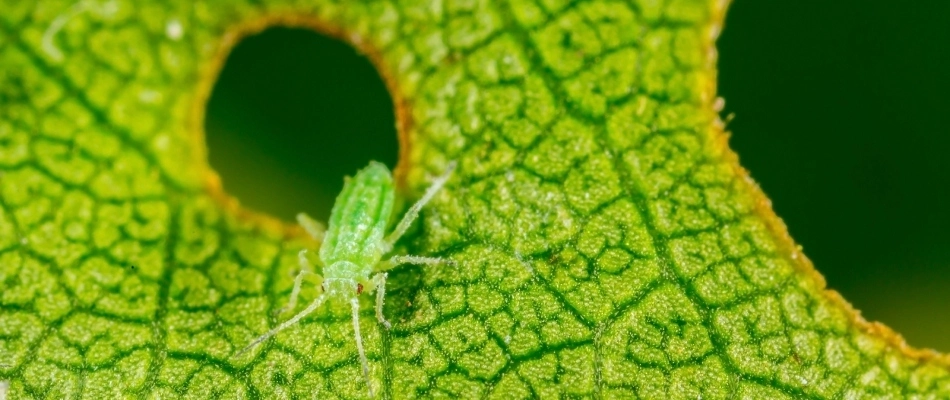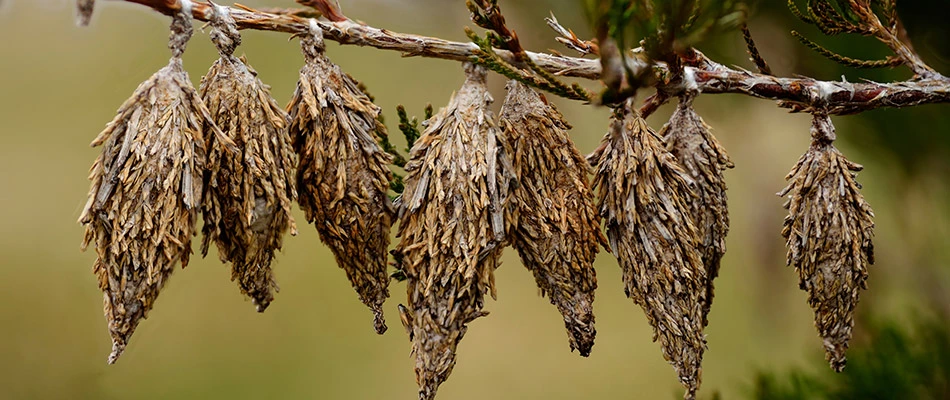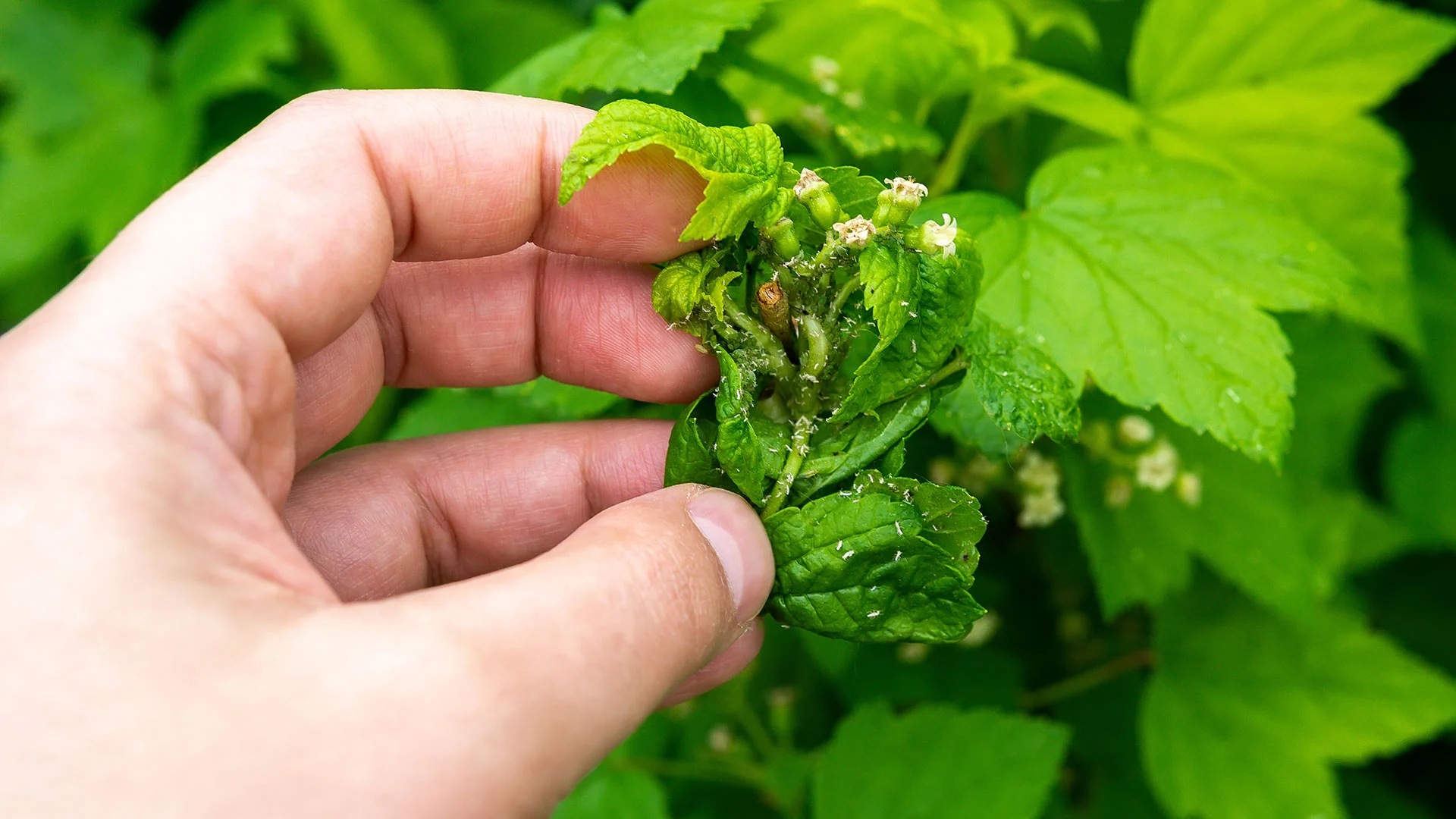Keeping your shrubs in excellent health means protecting them from damage-causing insects. Here in South Dakota, many insects can cause a great deal of damage to your shrubs, including aphids, spider mites, webworms, and bagworms. These pests either feed on the plant juices of your shrubs' leaves or eat the leaves themselves. Keep reading to learn more about these pests so that you know what to look out for to protect your shrubs from the extensive damage they can cause.
1. Aphids

Aphids are plant-feeding pests that damage your shrubs in South Dakota by sucking out juices from the tissue of your plants. These insects are about an eighth of an inch long and can be various colors like black, brown, red, white, or gray. They have a slender mouthpart that acts as a beak which they use to draw out sap and other essential juices from your shrubs.
These pests reproduce quickly, which is where the issue comes in. Female aphids hatch in the spring and produce about 40 to 60 aphids, reproducing a new generation of aphids every 1 to 2 weeks! A large aphid population can cause the leaves of your shrubs to wilt, become discolored, and curl. They can also stunt the growth of your shrubs!
Applying insect control treatments in the spring helps protect your shrubs in South Dakota from severe aphid damage.
2. Spider Mites
Spider mites are extremely tiny arachnids with reddish-brown, oval-shaped bodies. Female spider mites can produce up to 300 eggs in a span of several weeks and the eggs can become adults as quickly as 5 days if the conditions are favorable. Because of their tiny bodies, a spider mite infestation often goes unnoticed until their population has become very large.
A common tell-tale sign of spider mite damage is yellowing and wilting leaves. If you notice that your shrubs are discolored and look weak, you'll want to schedule curative treatments to eliminate the infestation and stop spider mites from damaging your shrubs more.
3. Webworms

The term webworm is used for various caterpillars that spin webs using silk to create protective nests. Common types of webworms include the eastern tent caterpillar and fall webworms, both of which will feed on the leaves of your shrubs and cause extensive damage to them. Eastern tent caterpillars are active from April to early June, while fall webworms are active from July to September.
If the foliage of your shrubs is covered in webs, you'll want to take action immediately. If left ignored, webworms can defoliate your shrubs and affect the aesthetics of your plants in South Dakota. Luckily, you can take advantage of shrub insect control treatments to eliminate them from your plants!
4. Bagworms

Bagworms got their name from the long bags they create that can be seen hanging on the twigs of trees and shrubs. Their life cycle starts when eggs hatch around late May to early June and the newly hatched larvae start feeding on the outer layer of your shrub's leaves, flowers, roots, and stems.
Female bagworms can produce as many as 500 eggs, and if you don't catch the infestation early, your shrubs can quickly become overrun by these pests. Mature bagworms are serial defoliators, and without proper treatment, you'll be left with struggling, leafless shrubs. It's best to monitor your shrubs in South Dakota and check for the bags they're famous for, so you can act quickly and seek professional insect control immediately!
Give us a call today to schedule our tree and shrub insect control treatments.
Healthy and lush shrubs can improve the curb appeal of your property. With various insects threatening your shrubs in South Dakota, it's best to have tree and shrub care professionals by your side. That's where we come in to help. Our team at Sharp Lawn Care offers tree and shrub insect control treatments to homes and businesses in Sioux Falls, SD and nearby areas like Tea and Harrisburg. If you own a property in these areas, you can give us a call at (605) 251-6880, but if you're in Sioux City, IA or a nearby area, you can call us at (712) 253-8024 to schedule our tree and shrub insect control treatments.




Comments (0)
Thanks for your comment!
Thanks for your feedback! Your comments have been successfully submitted! Please note, all comments require admin approval prior to display.
Error submitting comment!
There is a problem with your comment, please see below and try again.